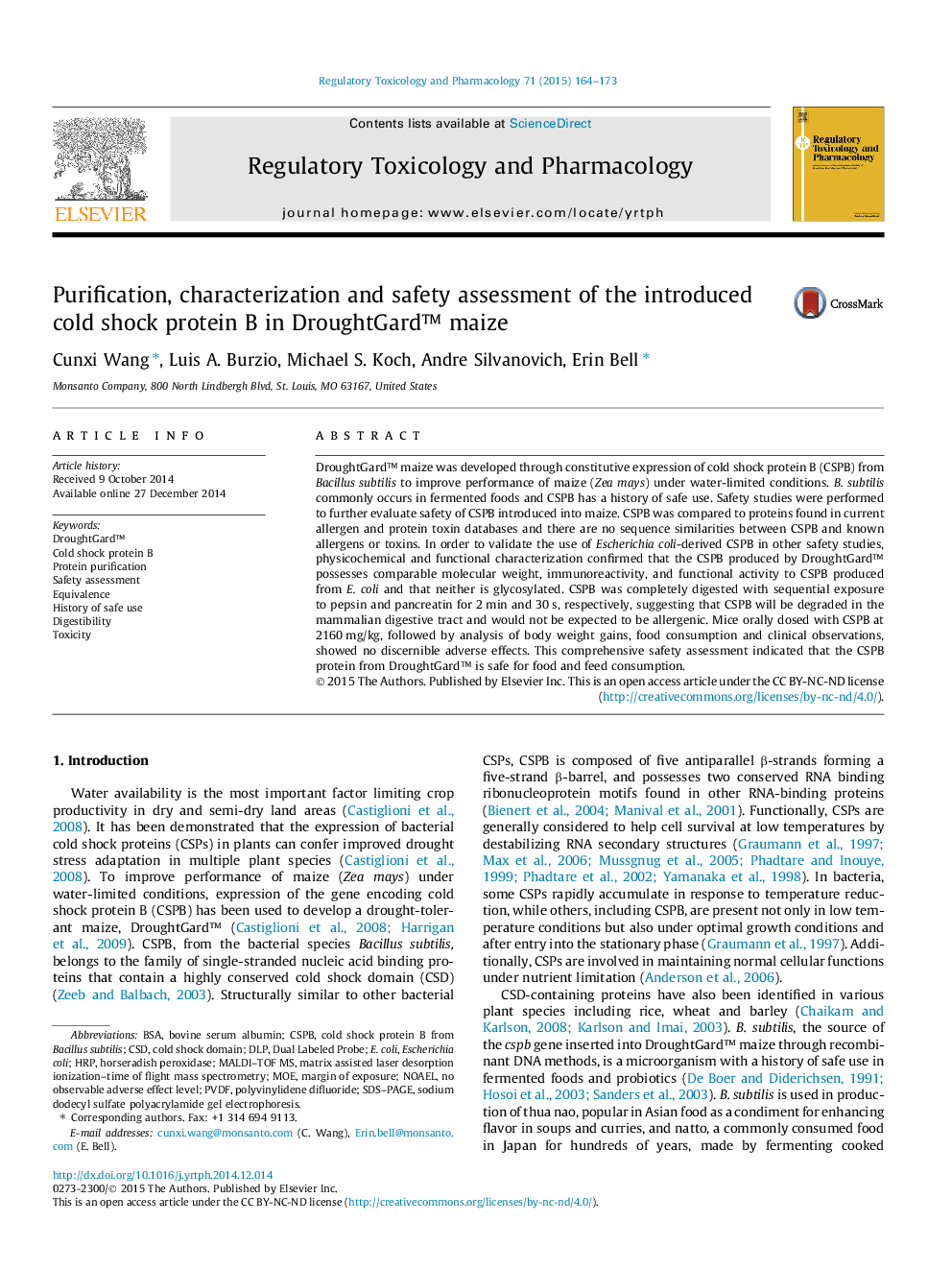| Article ID | Journal | Published Year | Pages | File Type |
|---|---|---|---|---|
| 5856488 | Regulatory Toxicology and Pharmacology | 2015 | 10 Pages |
â¢CSPB has a history of safe use.â¢CSPB does not share any sequence similarity to known allergens or toxins.â¢The CSPB protein is susceptible to digestive enzymes.â¢Oral toxicity study of CSPB showed no adverse effects in mouse.â¢These analyses support the conclusion that CSPB protein from DroughtGard⢠is safe.
DroughtGard⢠maize was developed through constitutive expression of cold shock protein B (CSPB) from Bacillus subtilis to improve performance of maize (Zea mays) under water-limited conditions. B. subtilis commonly occurs in fermented foods and CSPB has a history of safe use. Safety studies were performed to further evaluate safety of CSPB introduced into maize. CSPB was compared to proteins found in current allergen and protein toxin databases and there are no sequence similarities between CSPB and known allergens or toxins. In order to validate the use of Escherichia coli-derived CSPB in other safety studies, physicochemical and functional characterization confirmed that the CSPB produced by DroughtGard⢠possesses comparable molecular weight, immunoreactivity, and functional activity to CSPB produced from E. coli and that neither is glycosylated. CSPB was completely digested with sequential exposure to pepsin and pancreatin for 2 min and 30 s, respectively, suggesting that CSPB will be degraded in the mammalian digestive tract and would not be expected to be allergenic. Mice orally dosed with CSPB at 2160 mg/kg, followed by analysis of body weight gains, food consumption and clinical observations, showed no discernible adverse effects. This comprehensive safety assessment indicated that the CSPB protein from DroughtGard⢠is safe for food and feed consumption.
